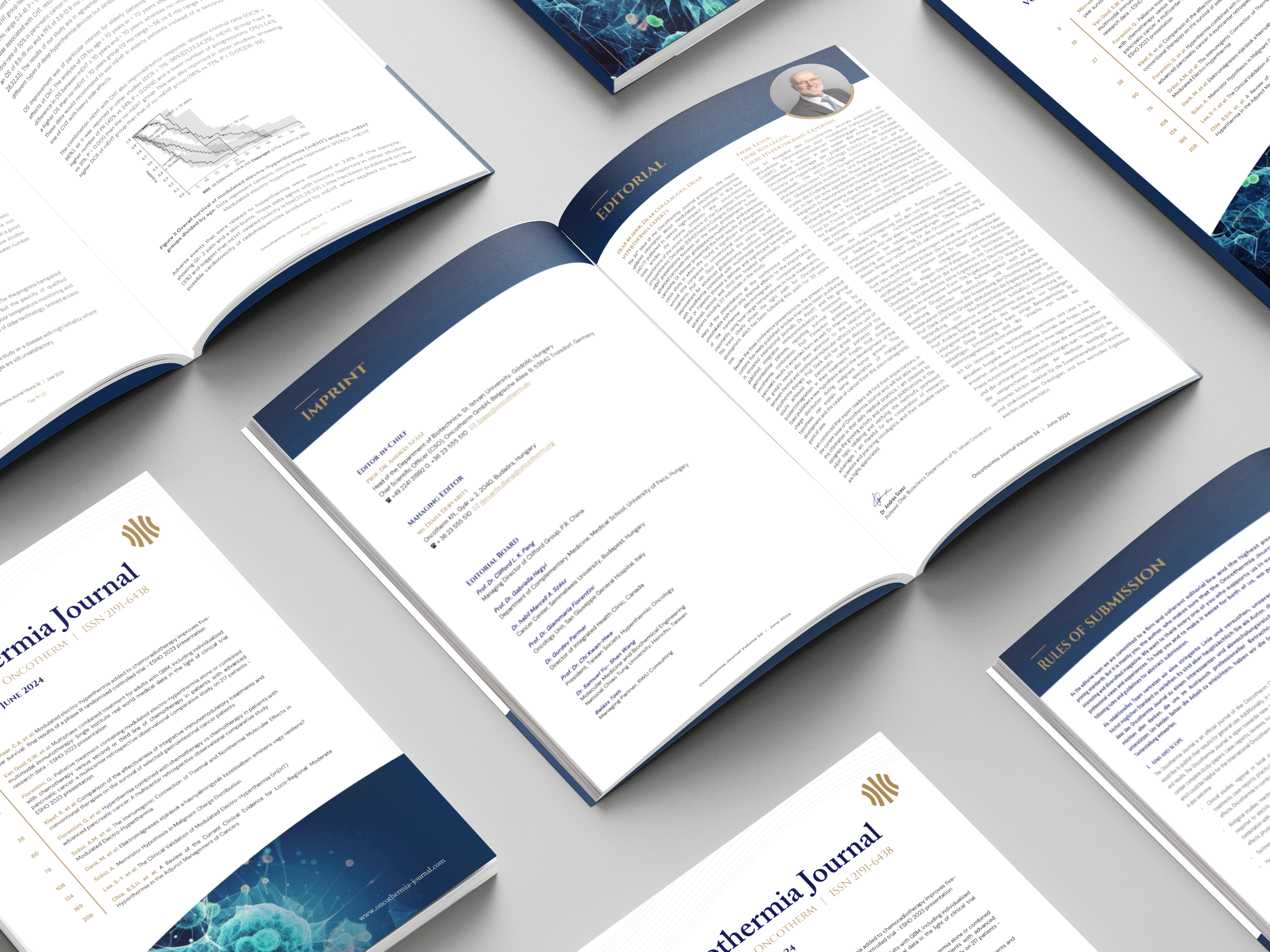Please click here to read the article
International Journal of Molecular Sciences has published an important article on the topic of modulated electro-hyperthermia, congratulations to the authors!
Modulated Electro-Hyperthermia Resolves Radioresistance of Panc1 Pancreas Adenocarcinoma and Promotes DNA Damage and Apoptosis In Vitro
Authors: Gertrud Forika, Andrea Balogh, Tamás Vancsik, Attila Zalatnai, Gabor Petovari, Zoltan Benyo, Tibor Krenacs
Abstract
The poor outcome of pancreas ductal adenocarcinomas (PDAC) is frequently linked to therapy resistance. Modulated electro-hyperthermia (mEHT) generated by 13.56 MHz capacitive radiofrequency can induce direct tumor damage and promote chemo- and radiotherapy. Here, we tested the effect of mEHT either alone or in combination with radiotherapy using an in vivo model of Panc1, a KRAS and TP53 mutant, radioresistant PDAC cell line. A single mEHT shot of 60 min induced ~50% loss of viable cells and morphological signs of apoptosis including chromatin condensation, nuclear shrinkage and apoptotic bodies. Most mEHT treatment related effects exceeded those of radiotherapy, and these were further amplified after combining the two modalities. Treatment related apoptosis was confirmed by a significantly elevated number of annexin V single-positive and cleaved/activated caspase-3 positive tumor cells, as well as sub-G1-phase tumor cell fractions. mEHT and mEHT+radioterapy caused the moderate accumulation of γH2AX positive nuclear foci, indicating DNA double-strand breaks and upregulation of the cyclin dependent kinase inhibitor p21waf1 besides the downregulation of Akt signaling. A clonogenic assay revealed that both mono- and combined treatments affected the tumor progenitor/stem cell populations too. In conclusion, mEHT treatment can contribute to tumor growth inhibition and apoptosis induction and resolve radioresistance of Panc1 PDAC cells.






